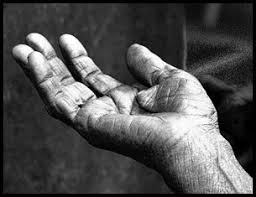Bhopal Prohibits Begging
Recently, Bhopal’s district collector implemented a ban on begging across all public spaces. This decision came shortly after Indore introduced similar measures. These actions are rooted in the Bharatiya Nagarik Suraksha Sanhita (BNSS), 2023, which empowers officials to address urgent nuisances. The legal framework surrounding begging remains controversial, raising questions about the treatment of vulnerable populations.
Legal Framework for Prohibiting Begging
- The orders in Bhopal and Indore are enacted under Section 163 of the BNSS, 2023.
- This law allows officials to manage urgent cases of nuisance or danger.
- It gives district magistrates the authority to issue orders that can restrict public behaviour.
- Non-compliance can lead to serious penalties under Section 223 of the Bharatiya Nyaya Sanhita (BNS), which includes imprisonment and fines.
Historical Context of Anti-Begging Laws
- The first anti-begging law in India was the Bombay Prevention of Beggary Act, 1959.
- This colonial-era legislation aimed to clear the streets of beggars and those deemed ‘incurably helpless’.
- It allowed for indefinite detention of individuals classified as such.
- The Act has been a basis for similar laws in various states, leading to ongoing debates about its effectiveness and morality.
Judicial Oversight and Decriminalisation
- In 2018, the Delhi High Court decriminalised begging by striking down certain provisions of the 1959 Act.
- The court argued that begging often stems from socio-economic issues, not criminal intent.
- It brought into light the government’s responsibility to provide social security and basic facilities.
- However, some provisions relating to forced begging remain intact, allowing for continued legal action against specific practices.
Current State of Begging Laws in India
There is no central law governing begging in India. Most states have adopted their own versions of the 1959 Act. While some states have moved towards decriminalisation, others maintain stringent laws. The lack of a unified approach complicates the treatment of beggars and the enforcement of laws across different regions.
Activism and Social Perspectives
Activists argue that criminalising begging fails to address the root causes of poverty and homelessness. They advocate for rehabilitation and social support rather than punitive measures. Various proposals, such as the Persons in Destitution (Protection, Care and Rehabilitation) Model Bill, 2016, aim to shift focus towards social security and rehabilitation.
Government Initiatives and Policies
In 2020, the Union Ministry of Social Justice and Empowerment proposed initiatives to rehabilitate beggars rather than punish them. This included a campaign in ten cities to create ‘begging-free’ environments. However, the enforcement of existing laws continues to overshadow these rehabilitation efforts.
Month: Current Affairs - February, 2025
Category: Legal & Constitution Current Affairs








